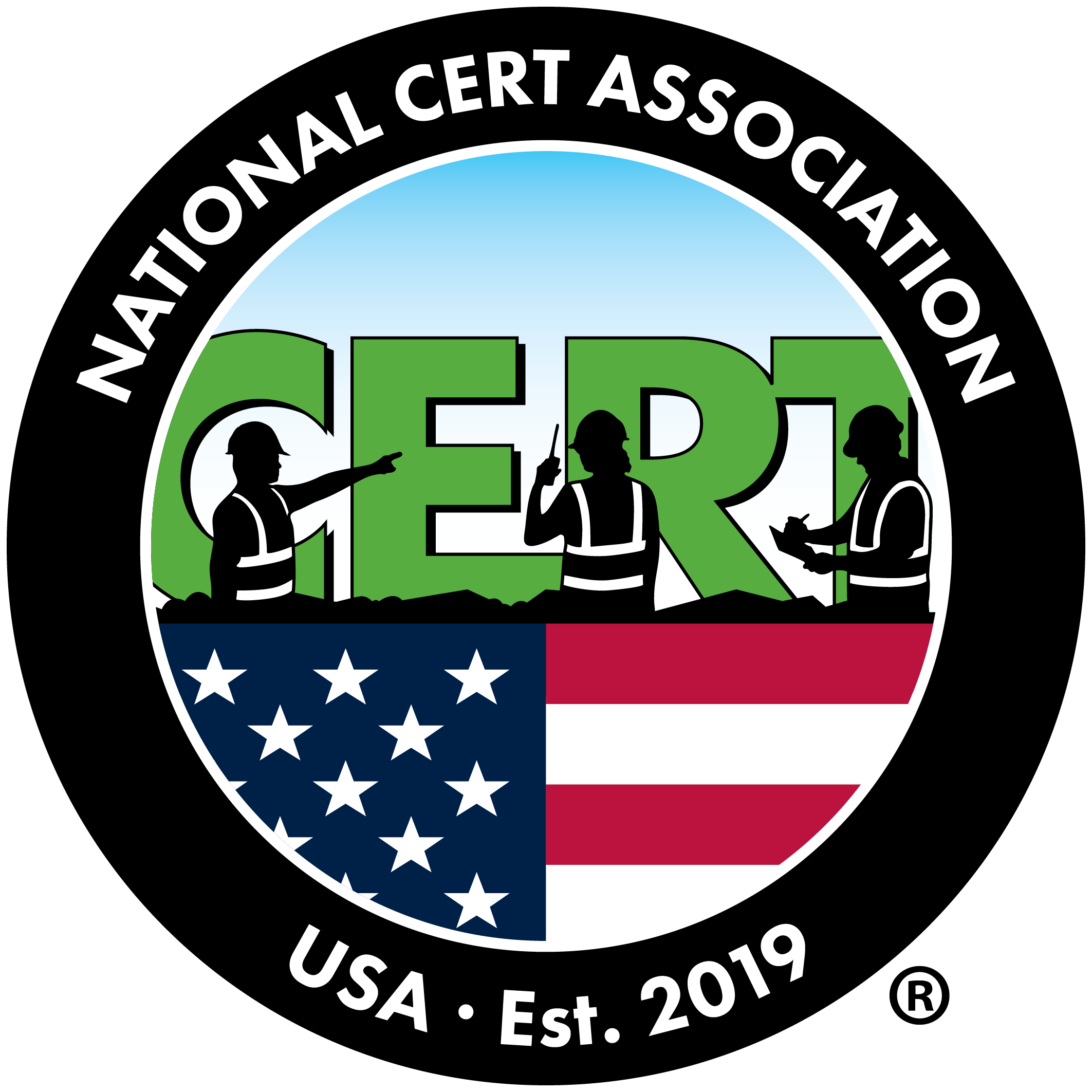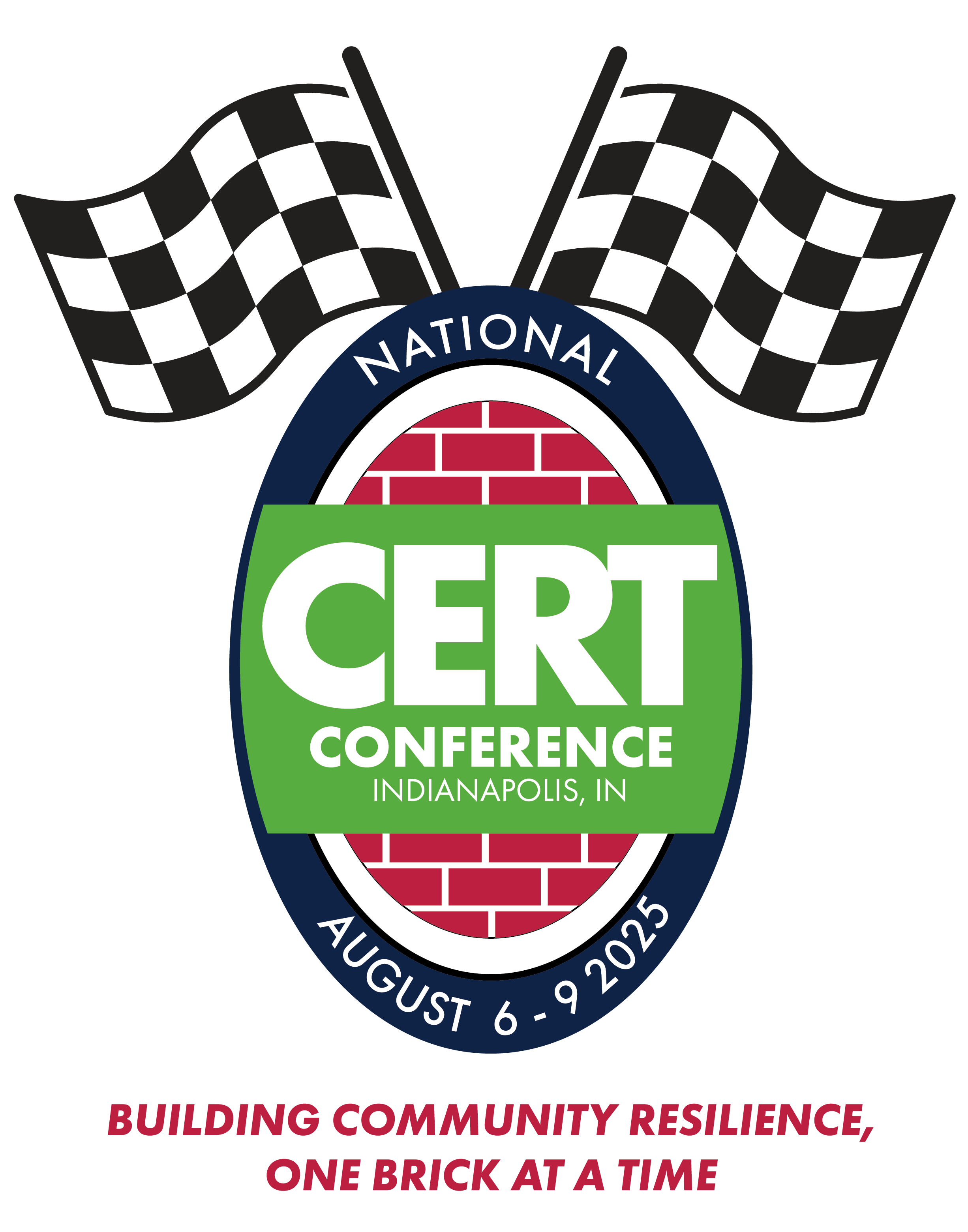National Conference (Additional Details)
2025 National CERT Conference
This year's conference theme, "Building Community Resilience, One Brick at a Time" is a nod to the famous Indianapolis Motor Speedway, known as "The Brickyard." The conference will feature training and presentations for all levels of CERT including: Emergency Management professionals, CERT Program Managers, CERT Instructors, CERT Volunteers, and CERT partners.
Conference Program and Schedule
See below for the Conference Program that contains a schedule of the conference sessions.
For a printable copy of the schedule, you can download it here.Know Before You Go
Click here to view the "Know Before You Go" email so you are ready for the conference.
Costs
Early Bird Registration rates available until June 6, 2025.
| Conference Rates | Before 6/6/25 | After 6/6/25 |
| General Registration (Volunteers) | $395 | $445 |
| General Registration (Non-Volunteers) | $525 | $575 |
| General Registration + Pre-Conference (Volunteers) | $470 | $520 |
| General Registration + Pre-Conference (Non-Volunteers) | $600 | $650 |
| One-Day Registration for Saturday, August 9th | $100 | $150 |
| Pre-Conference Training Only | $75 | $75 |
Hotels
The conference will be held at the Embassy Suites by Hilton Plainfield Indianapolis Airport. Special conference rates are available to those registered for the conference.
Additional Conference Resources
- Sponsor and Exhibitor Packet
- Call for Speakers (Proposals due 5/16/25)
- Conference Flyer
Conference Sneak Peek Webinar
Missed the Sneak Peek Webinar and want to know what to expect at this year's conference?
- Recording: https://bit.ly/4l3ijRY
- Passcode: 7N9L+Zty
Cancellation/Refund Policy
No refunds will be issued for any cancellations received after July 20, 2025. Substitutions are allowed and must be submitted in writing prior to the start of the conference.

